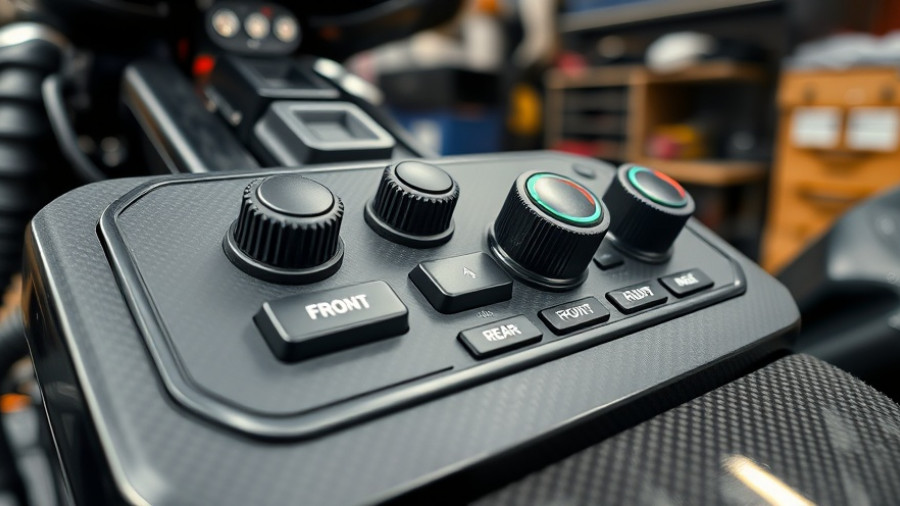
The Cutting-Edge of Braking Technology: Motorsport ABS vs Stock
For car enthusiasts and performance-driven drivers, understanding the mechanics behind effective braking can mean the difference between a safe ride and a high-stakes disaster on the track. Recently, a comparison between standard stock ABS and Bosch's sophisticated Motorsport ABS systems threw light on how these two systems stack against each other. What we found was not just numbers but a revelation regarding performance metrics and driving techniques.
The Big Numbers: Braking Performance Revealed
A weighty factor in any automotive modification is its impact on performance. In this case, the demanding 200 km/h to 0 km/h test provided valuable insights. For our GT86, the stock system recorded an average stopping distance of 111.2 meters, while the Bosch ABS system sliced that down to 92.8 meters—a stunning 18.4 meters shorter, translating into a 17% improvement. Such substantial gains in braking efficiency solidify the importance of performance-focused components, particularly on the racetrack.
Understanding the Mechanisms: How ABS Works
A common misconception among casual drivers is that all ABS systems function the same way. In reality, while stock ABS prioritizes stability and ease of use for everyday drivers, Motorsport ABS takes a different approach: it emphasizes maximum stopping power. By maintaining optimal slip ratios, Motorsport ABS systems ensure that vehicles achieve peak braking performance, even in the challenging conditions often found in competitive racing. This tuning is crucial for advanced drivers who must adapt their technique to leverage these high-performance systems effectively.
Adapting Your Driving Style for Maximum Efficiency
Embracing Motorsport ABS comes with a shift in driving technique that many might find surprising. Unlike traditional threshold braking, where drivers meticulously balance brake pressure, Motorsport ABS necessitates a more assertive approach. The idea is to apply significant force to the brakes initially, allowing the system to control and modulate the pressure to prevent wheel lock-up. This nuanced shift can dramatically influence braking zones and lap times in a competitive setting.
Conclusion: Is Motorsport ABS Worth the Investment?
Many car enthusiasts may wonder if upgrading to a high-performance ABS system is worth the financial commitment. Given its price tag of around $10,000 AUD, the system isn't cheap. However, with proven performance improvements and enhanced driver confidence on the track, it could very well be one of the most critical upgrades for dedicated racers. The question remains: at what point do performance and safety become worth the investment for serious drivers?
 Add Row
Add Row  Add
Add 




Write A Comment